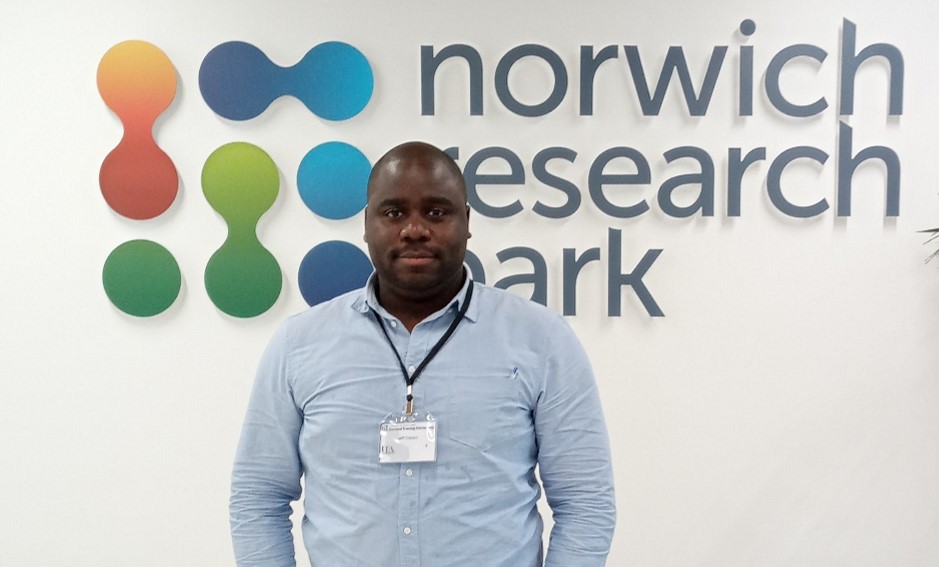Jeff Ojwach

Project title: Bacterial DMSP synthesis and catabolism in seagrass and methane cycling in anoxic Blakeney sediment
Supervisors: Professor J. Colin Murrell , Professor Jonathan Todd
After my undergraduate in Microbiology, I got an opportunity to work in industry at the GSK labs and this opened a new vista in my research journey. For this reason, I applied for my MSc in South Africa where I got first-hand insight into Microbiology research. I later won a prestigious Wellcome Trust, GCRF fellowship to the University of Glasgow, United Kingdom to do malaria research on host-pathogen interaction. I loved science in the UK and knew this is where I would want to receive training for my PhD. I applied through a competitive process, and I was very ecstatic when I was selected to join the Murrell and Todd lab at the Norwich Research Park, UEA for my PhD studentship.
In my PhD, I am investigating the occurrence of bacterial species capable of producing and degrading Dimethylsulfoniopropionate (DMSP) from seagrass and how marine bacteria contribute to carbon, sulfur and/or energy via DMSP catabolic pathways. Secondly, I am looking at another understudied route to produce methane via microbial degradation of DMSP which is one of the Earth’s most abundant organosulfur compounds with key roles in global nutrient, sulfur cycling, signalling and climate regulation. One of its degradation products, dimethylsulfide (DMS), is also very abundant and considered a ‘climate-cooling gas’. DMS degradation in anoxic sediments leads to the formation of methane, a powerful greenhouse gas. Therefore, it is essential to understand the cycling of DMSP, DMS and methane production in anoxic Blakeney sediments to better understand how microbial metabolism affects the climate in this environment.
The DTP has also given me opportunities such as being my Cohort representative in the DTP board meetings and offered me other avenues to learn in areas unrelated to my PhD through numerous outreach programs. Soon I will be going for my PIPS to Gold Coast, Australia which gives me an adventure for travel, to learn new research niches in neurobiology, transplantation therapy for spinal cord regeneration, use of 3D bioprinting to generate nerve bridges and stem cell research. The training at the NRP DTP will propel me to be a “modern” scientist in wet lab, bioinformatics analysis and science communication.
